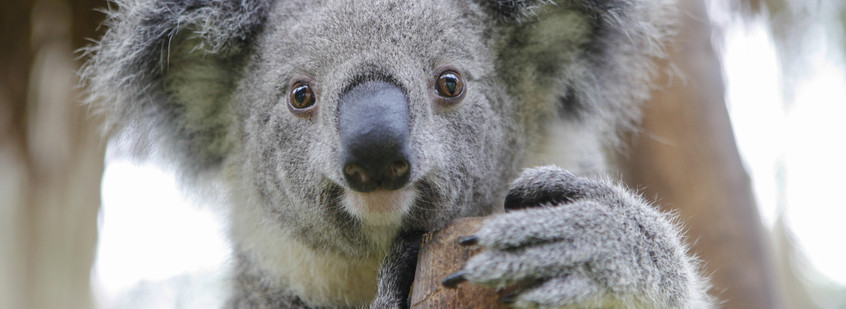On Monday, NSW Labor leader Luke Foley announced a plan to help save one of Australia’s most iconic species – the koala.
The shadow state government proposes to create a Great Koala National Park stretching over 315,000 hectares of public land from Coffs Harbour, along the Macleay River near Kempsey, all the way inland to Woolgoolga.
Foley says the strategy is modelled on China’s famous panda reserves and that he is championing the cause as a result of a severe decline in koala numbers over the past 20 years.
“When I first learned that the koalas of NSW’s north coast are under threat of region extinction I was deeply troubled,” Foley said.
“Something serious needs to be done and it cannot be token. I don’t want to tell my grandchildren that my generation allowed the koala to disappear.”
Recent concern for Australia’s koala has bubbled to the surface as a result of yet another warm summer period with severe bushfires threatening humans and wildlife alike.
Chief executive of the Australian Koala Foundation (AKF), Deborah Tabart recently singled out the federal government for wasting time when good policy leadership is required as a matter of urgency.
Her specific concerns relate to the way koala’s are classified differently under state laws, saying: “It is ironic to me that we have politicians of all persuasion tweeting about koalas burnt in the fire, but not one of them appreciates the need for a Koala Protection Act”.
“It’s important to ask why koalas in this area do not enjoy the protection of the federal government. When the koala was listed as a Federally Threatened Species in May 2012, koalas in Victoria and South Australia were specifically excluded from protection,” she said.
According to the Environmental Protection and Biodiversity Conservation Act 1999, a decline in population numbers of 30 per cent or more is needed for a native species to gain a nation-wide listing.
Unfortunately, koalas in Victoria and South Australia were only shown to have declined by 29 per cent according to a survey backed by the Threatened Species Technical Committee, the organisation appointed to advise the federal minister for the environment on listing decisions.
“How did they get that precise figure, when the AKF, even after nearly 30 years and $10m in research and mapping cannot give such a delicate balance of the math?
“I believe it’s because they constantly fudge figures. The committee has even acknowledged the numbers were doubled purely on hearsay, and have conceded that there is no formal estimate, or even any data to support the increase,” Tabart said.
When asked by Wild, the threatened species commissioner, Gregory Andrews would not be drawn on the issue of whether a blanket legislation for the koala was required, stating: “We already have a national law in place that protects threatened species, including the koala in states where the population is vulnerable”.
The decision not to list koalas as vulnerable in two states was made in 2012, when an estimate of Victorian population numbers had mysteriously doubled from their 2012 estimated figures.
However, Andrews says that the Australian government is “committed to the protection and recovery of threatened species, including the listed koala species”.
“This listing ensures that any proposed action likely to have a significant impact on the listed koala species must be referred to determine whether approval is required under national environmental law before it can proceed.
“In addition to the listing, the government is working with State Governments to continue to implement the National Koala Conservation and Management Strategy 2009-2014 which identifies actions to conserve the koala across its natural range,” he said.
The government has also committed $300,000 under the National Environmental Research Programme to develop new ‘habitat survey methods that will identify and improve our knowledge of the quality of koala habitat by remote sensing’.
For those interested, Change.org is currently hosting a petition to make the NSW Great Koala National Park a reality.


